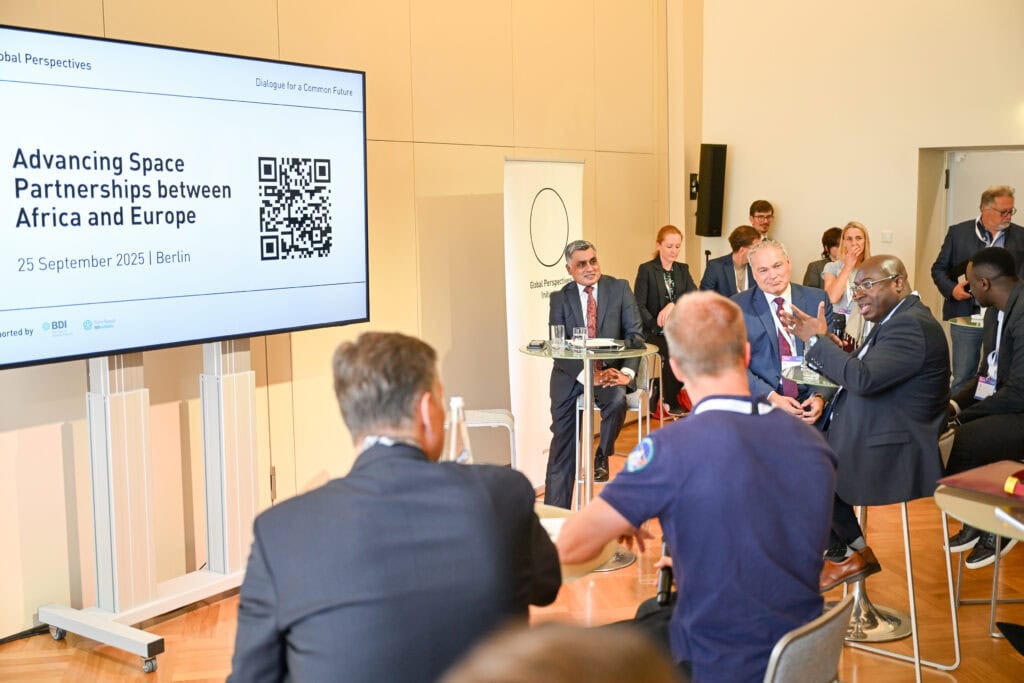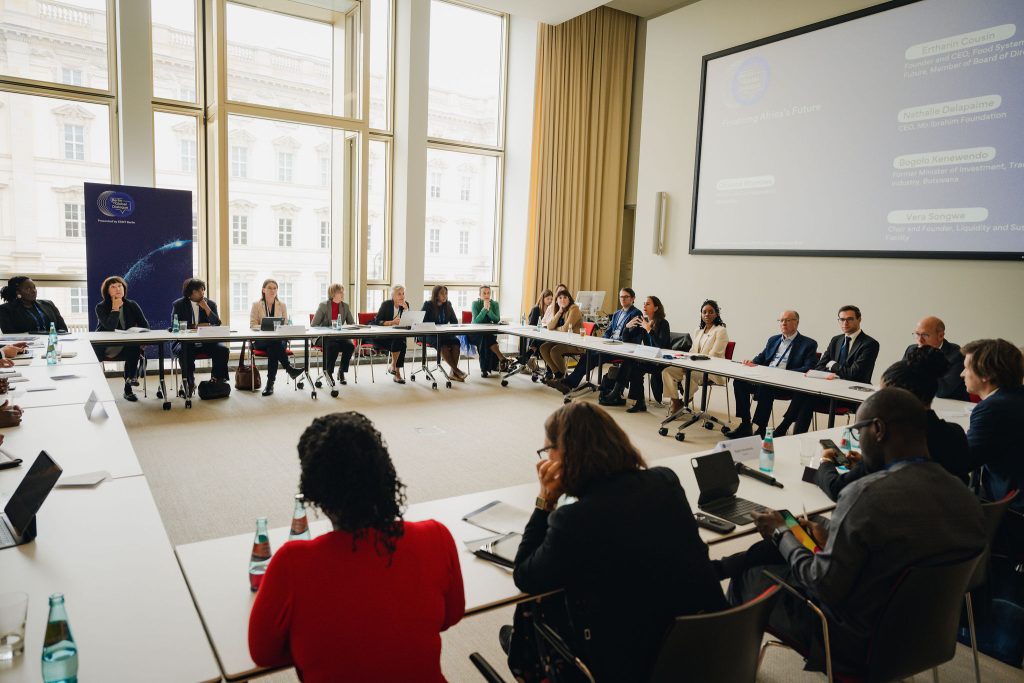Salon
Investing in Africa: A Call for Action
Sustainable Growth in Africa
Salon: Investing in Africa: A Call for Action
September 22, 2022
SAP Data Space
The challenges facing African countries have been discussed for over a decade now. However, they have not yet been addressed in concrete terms. At this Follow-Up to our conference The Africa Roundtable in May 2022 on “Recovery, Preparedness, and Resilience in Times of Crises”, the focus of the debate was on promoting sustainable development and growth in Africa. Private capital is needed to enable African markets to catch up with the global economic players and to ensure steady development in all countries. Targeted private sector initiatives are needed to create the right structures to accelerate development through economic growth in Africa. Together, we identified the three key ingredients needed for a sustainable upswing: strong partnerships, catalyzing funding, and innovation and digitalization.
Main Areas of Action
Infrastructure
Open and direct means of transportation that are accessible to all improve the logistical infrastructure. The financial infrastructure should be promoted by a standardized payment system and a stronger local banking sector for the development of the fintech industry. Regional connectivity can be created through the African Continental Free Trade Area (AfCFTA), which in turn attracts more foreign investors.
Environment
There is a need for a stronger local presence of investors and entrepreneurs as well as the promotion of co-investments. More practicable investment vehicles and support systems must be created to provide local support. The development of bankable projects therefore needs more attention and support. The increased offer of de-risking measures also promotes confidence-building among investors.
Trust
So far, there has been an asymmetry of perception between market participants and foreign countries. This narrative needs to be corrected in order to reduce the perceived risk. This requires greater involvement of African representatives and more personal encounters. Greater information transparency reduces the complexity of the market and makes opportunities more visible for both sides.
Speakers
Contact Persons
Rhoda Berger, r.berger@globalperspectives.org
Salon
Continuous dialogue creates awareness for the urgent questions of our time. In salons, renowned experts open the discussion with our selected guests from business, politics and society.
Program Archive
Africa’s critical minerals are essential to Europe’s future, playing a significant role in the green transition and industrial competitiveness. The Follow-Up to the 9th edition of the Roundtable.
In the ninth edition of the Africa Roundtable, we discussed how Europe and Africa build partnerships that turn Africa's raw material wealth into local value creation.
This paper explores how Africa can add value to its critical minerals, boost local processing, and drive green industrialization while strengthening regional and global supply chains.
We discussed with State Secretary Niels Annen how development policy can be integrated into networked foreign, security, and economic policies.
US tariffs changes are causing new uncertainties in global trade. Together with ONE and Pinelopi K. Goldberg, we discussed how international development policy needs to be realigned.
As traditional trade relations shift, strengthening local value chains, enhancing trade agreements, and mobilizing private capital are key to building more resilient and mutually beneficial economies.
Our speaker James Irungu Mwangi shared his perspective on how to accelerate climate action and investment across Africa. Together, we discussed what it will take to mobilize the green finance needed.
Germany is a country of immigration. Building on our Commission's recommendations for action, we discussed ways to better manage and communicate labor migration.
Europe and Africa have the chance to advance technology and shape the future of the global space economy together through cooperation.









